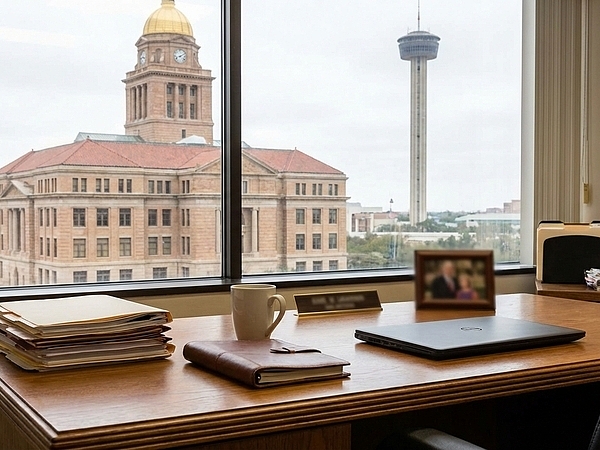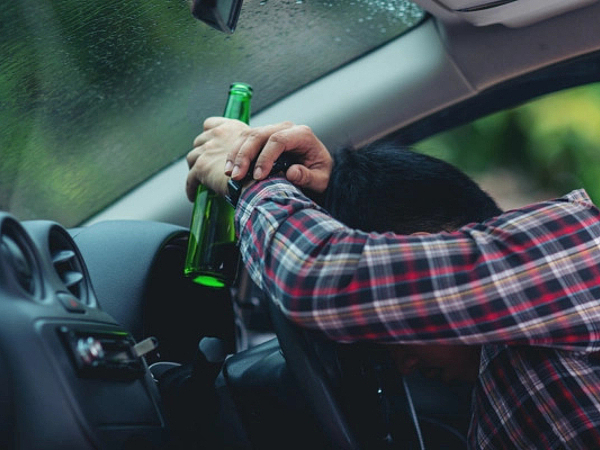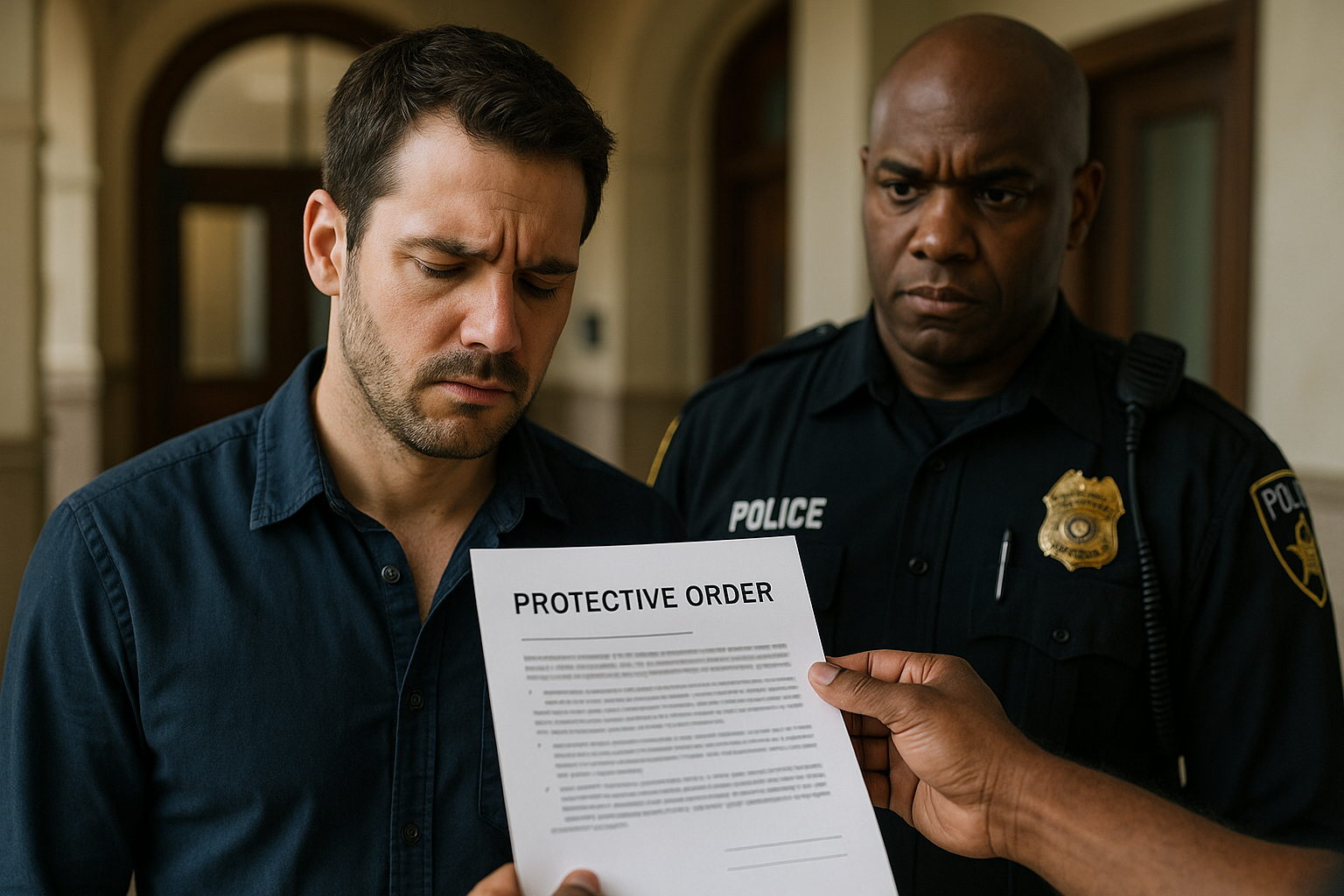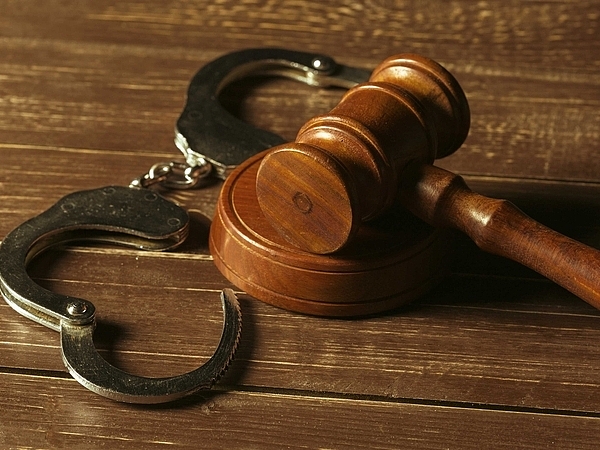In a Dispute between Spouses, Is the Husband the One Who Is Arrested Most Often?
San Antonio Domestic Violence Lawyer
Interviewer: When the police make an arrest, it is usually the husband?
There Is Now an Increase in the Number of Women Being Arrested in a Domestic Violence Situation
Attorney Churak: It used to be the man, and now it’s probably 70/30%; 70% male, 30% female. They’re starting to arrest women now because there are situations where the husband is the one that is physically assaulted and it is the woman that goes off to jail.
Interviewer: What will happen when someone’s arrested?
After an Arrest, the Individual Is Taken to the Magistrate’s Office and Must Post a Bond to Be Released
Attorney Churak: The party is placed in custody. They’re taken down to the magistrate’s office. They’re read their rights with the charges against them. There’s usually, on family violence cases, if it is a misdemeanor, a $3,500 bond that they’ll have to post to be released.
If the Level of the Charged Is Raised from a Misdemeanor to a Felony, the Amount of the Bond Increases
Depending on the specific circumstances, if the misdemeanor charge turns into a felony charge, the amount of the bond will be more expensive.
Texas Courts Issue 2 Types of Protection Orders for the Victim in a Domestic Violence Case
Interviewer: Is there a protective order that’s put in place?
The Temporary Magistrate Order Is in Effect for 90 Days
Attorney Churak: There is sometimes. There are two types of protective orders that we have in Texas. The first one is called the Temporary Magistrate Order, which is issued by the magistrate and it’s good for 90 days, and it’s ex parte done and that just keeps the person away from each other for that time period.
In More Serious Cases of Domestic Violence, an Order under the Family Code Is Issued for Two Years
The other type is a protective order under the family code. That one is imposed for more serious situations. That requires a hearing and notice and it could be issued for up to two years.
Some Orders of Protection Include the Children as Well as the Spouse
It may stipulate that you’re to stay away from whoever the complaining witness is, as well as any children that may be involved in the household, which becomes really serious when you have a married relationship and these protective orders are issued, because the DA usually picks them up.
Attorney Churak Will Challenge the District Attorney’s Office on Behalf of His Client If the Protection Order Includes the Children in the House The DA is not really qualified to handle family law cases. What usually occurs is they obtain a standard protective order, which reads “stay away from the alleged victim and the children.”
The DA is not really qualified to handle family law cases. What usually occurs is they obtain a standard protective order, which reads “stay away from the alleged victim and the children.”
In a Domestic Violence Case between Spouses, per Law, the Spouse Facing Charges Is Still Allowed to Have Visitation with the Children
I’ve been in situations with the District Attorney’s office on a number of occasions with these protective orders. In these cases, I make them try the child custody issue because technically, the code says that the alleged perpetrator is supposed to be allowed to have visitation. You can’t just do a blanket “keep them out of the house, keep them away from the children,” order of protection.
The Order of Protection Can Be Misused during Divorce Proceedings Involving Child Custody Issues
This happens does occur in divorces. It is known to happen in divorce situations because that order is a good way to keep the husband away from the kids, especially if they think there’s going to be a custody issue or the spouse simply doesn’t want the husband to see the children. They obtain a protective order and all of a sudden, the father can’t see his children because he’s alleged to have assaulted his spouse.
Can the Protective Order Be Modified by a Judge? Do Need an Attorney to Facilitate This?
Interviewer: Will clients seek you out at this point to modify the protective order?
It Is Advisable to Retain an Attorney as Soon as You Are Arrested
Attorney Churak: You can modify the protective order but it’s really difficult. It is best for an attorney to become involved at the very beginning. What happens is that the client is served with papers with the protective order in it. It’s usually after the time the client has been arrested.
Many times, they serve the client with a protective order on the first court date, and then there’s a hearing within approximately 14 days of the protective order being issued. At that hearing is when your attorney has to come out full barrel. Predominately, this hearing works as a discovery proceeding on a criminal case and if there are children involved, you can work with the judge to set up visitation rights.
Oftentimes, I’ve seen the case resolve where we have the protective order dismissed in the civil case and the District Attorney has turned around and filed a criminal case. It’s a strange deal sometimes with these cases. The DA’s office has a separate family violence section. All they do is family violence cases.
‹ Back














